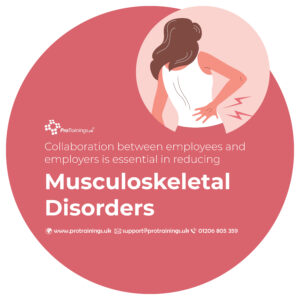 Annual Report on Musculoskeletal Disorders in the UK: Key Findings and Recommendations
Annual Report on Musculoskeletal Disorders in the UK: Key Findings and Recommendations
The Health and Safety Executive (HSE) has released its recent annual report on musculoskeletal disorders (MSDs) in the UK. Discover the prevalence, causes, and impact of MSDs, and explore the recommendations for prevention and management.
Prevalence and Impact of MSDs
MSDs are common and debilitating health issues affecting muscles, tendons, and soft tissues. The HSE report highlights MSDs as one of the most prevalent work-related health problems in the UK. In 2020-2021, approximately 480,000 work-related MSD cases accounted for 38% of all work-related ill health. The majority of cases involved upper limbs, neck, and back.
High-Risk Industries and Occupations
The health and social care sector had the highest rate of MSDs, followed by the construction industry and transportation/storage sector. Jobs involving manual handling, repetitive tasks, or awkward postures were identified as particularly high risk. Older workers were more susceptible to work-related MSDs, representing 45% of cases despite comprising only 31% of the workforce.
Impact on Individuals and the Economy
Work-related MSDs cause pain, disability, and time off work, resulting in lost productivity. The report reveals that approximately 6.9 million working days were lost due to MSDs in 2019-2020, amounting to a cost of £14.8 billion.
Recommendations for Prevention and Management
The HSE report provides several key recommendations. Employers should conduct risk assessments, provide training on safe lifting and handling techniques, encourage regular breaks and posture variations, offer appropriate equipment and tools, and promote early reporting of MSD symptoms with access to medical care and rehabilitation services. Collaboration between employees and employers is essential in reducing the incidence and impact of MSDs in the workplace.
